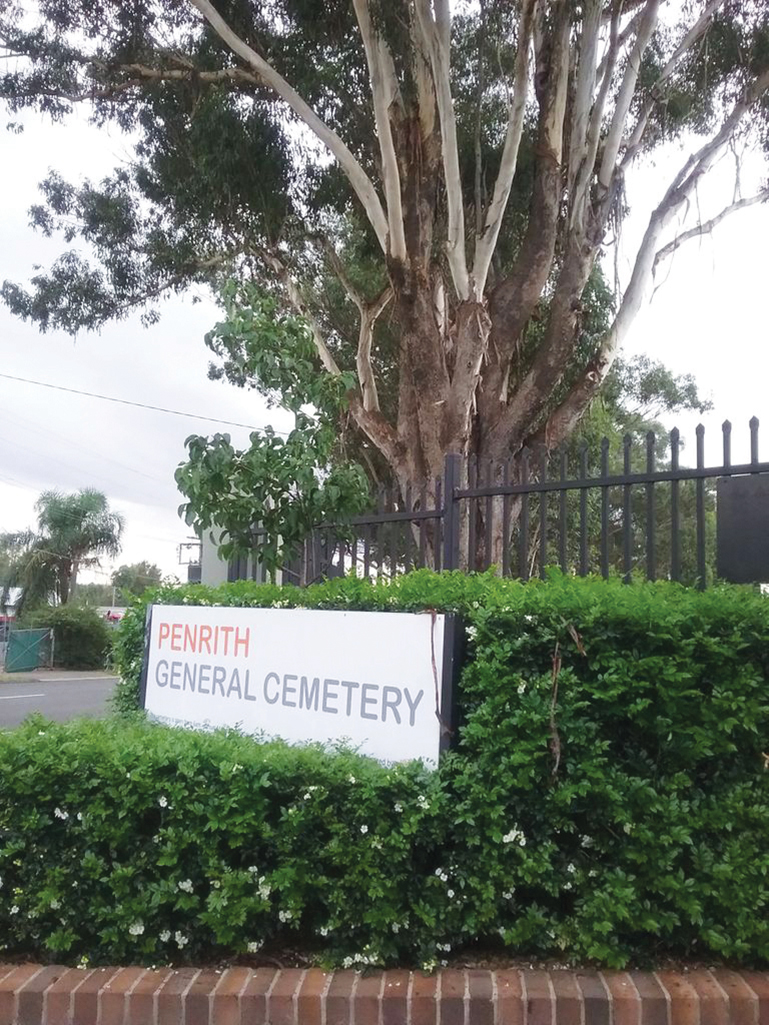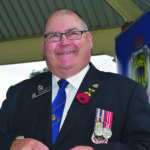By Lyn Forde – President/Research Officer of St Marys & District Historical Society Inc.
In 1912, word reached Penrith that Rowland Cochrane had been cut to pieces in the Glenbrook railway tunnel. He was born in 1887, the youngest son of Mr and Mrs John & Betsy Ann Cochrane (Margarson) of Doonmore Street who were married in 1876 in Penrith. The District Coroner Arthur Judges opened an inquest into the death where the following evidence was taken when Thomas Cornell said that he was a fettler in the employ of the Railway Department and at 6:56 a.m. he was coming through and examining the Glenbrook tunnel when he had reached between 3 and 4 chains of the west-end he saw the body of a dead man. The body was lying with his feet towards the rails and his head towards the wall of the tunnel, the distance between the rails being 4ft. The body was stiff and cold, and he left it as it was and went and informed the stationmaster at Glenbrook and asked him to contact the authorities. He said that he did not recognise the body but believed from the position of the body that Rowland had been struck by an up-train and his body was partly face downwards. A boot and a hat belonging to Rowland was lying to the east of his body having been carried further on, and his tucker bag was found to the west side of his body in a manhole, having been thrown there by the force of the impact. He mentioned that 24 hours previously the last examination of the tunnel was made by him, although four feet outside the line allows plenty of room to stand when trains are passing and there are also manholes and shelters every chain along the line. Next Charles Melville said that he was a junior porter at Glenbrook and was on duty when the train stopped at Glenbrook and he saw Rowland’s fortnightly ticket and about five minutes later he saw him walking down the platform in the direction of the pay office and that was the last he saw him as the pay office is a considerable distance down the line from the end of the platform and there was no evidence of liquor on Rowland when he saw him. Mahlah Cochrane said that she lived in Penrith and was the wife of Rowland and she had seen the body at the morgue and recognise it as her husband. She said that she last saw him alive yesterday when he entered the 1.19 p.m. train from Penrith for Glenbrook and he told her that he was going there to resume work and he would be back by the usual train at 6.15 p.m. He had a fortnightly ticket but it had expired the day before. She said that Rowland was born in Penrith and was 25 years of age and he possessed no property and his life was not insured. Because of that the family were rather badly off as just three months ago they buried their infant son only 27 days old. Ernest Heckenberg said that he was a police constable stationed at Glenbrook and at 7.10am this morning he saw Thomas Cornell who told him that there was a dead man in the Glenbrook tunnel and he went with him to the spot where Rowland was laying. He said that he searched the clothing and found the ticket produced with R Cochrane on it – Penrith to Glenbrook and expiring on 10th November. Rowland’s body was very cut about with his left foot cut off and the right leg badly broken and he had bruises on his head and body but he could not trace Rowland’s movements after arrival at Glenbrook yesterday afternoon. He sent his body to the morgue and notified the coroner. At this stage the inquest was adjourned until Rowland’s body was brought to Penrith on Tuesday night. The funeral was held on the Wednesday afternoon and Rowland’s remains were interred in the Salvation Army portion of the Kingswood General Cemetery with Reverend Canon Archdall assisted by Reverend J Hornby Spear of the Glenbrook Mission who officiated at the graveside. Several of Rowland’s fellow workmen were at the funeral. Rowland was a first-class musician and a member of the Penrith Band. On Saturday, 30th November 1912 a letter from John D Cochran, 133 King Street, Sydney arrived at the Nepean Times office regarding the death of Rowland saying “Sir, I express my astonishment and disappointment at the statement made by John Molloy at the inquest on the death of Rowland Cochrane. In Molloy’s evidence where he said that he remembered that on the 11th of the present month he went by the 1.10pm train from Penrith to Glenbrook on that date and previous to going to the station he saw Rowland at the Red Cow Hotel and noticed that he had been drinking and he saw him served with a bottle of drink which he put in his leather bag and he followed me into Station Street. Molloy told me that he was sure it was a bottle of beer. It is incorrect that Rowland travelled to Glenbrook by the 1.19 train, but the statements that have been made to me by reliable people in Penrith differ from that given by Molloy’s evidence. I understand that Rowland returned from Glenbrook, arriving in Penrith about eight o’clock on the morning of the 11th. At about noon after conversing with two friends near the Commercial Hotel he proceeded with another person to a house in Castlereagh Street and between noon and half past twelve Rowland and another man proceeded together along Henry Street, then along Station Street towards the railway station arriving at about a quarter to one o’clock. On reaching the station Rowland held a conversation with a well-known Penrith gentleman and Rowland did not leave the railway station prior to the arrival of the 1.19pm train and he did not enter the Red Cow Hotel at any time after 9 o’clock on that day. Molloy stated that Rowland was served with a bottle of drink that he put in his leather bag and if you saw what this bag contained on that day as usual it was, a small can and his dinner and it was almost impossible to place anything else in it. What Charles Melville of Glenbrook Station said I believed him. It is remarkable that so many people met Rowland in Penrith that day and did not receive an impression that he had been drinking. Molloy also states that he saw Rowland stand on the station momentarily looking agitated and seemed to be considering for a moment, then all at once started off at a brisk rate. Molloy’s mind may have been agitated on that day, but Rowland’s mind was meditative. There are several Christian people in Penrith who knew of the lad’s earnest intention to better his condition in every possible way on the day he was killed, with such good thoughts firmly fixed in his mind he accidentally met his death in the manner and in accordance with the finding of the coroner.”
Source: Nepean Times Saturday 16 November 1912, page 3, Saturday 30 November 1912, page 6, Trove, NSW Births, Deaths & Marriages, NSW Australian Registers of Coroner’s Inquest 1821-1937






